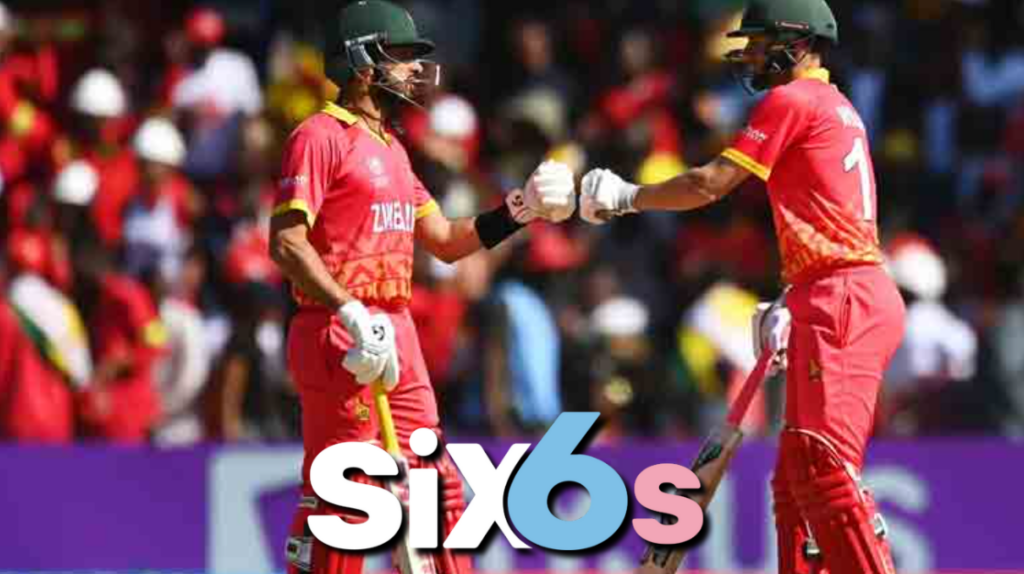In a heated T20I clash between Zimbabwe and Ireland, a moment of on-field frustration landed Zimbabwe’s star all-rounder in hot water, triggering a potential two-match suspension and reigniting discussions about player conduct and upholding the spirit of the game.

Cricket, beloved for its elegance and gentlemanly spirit, isn’t immune to occasional bursts of fiery emotions. The December 9th T20I between Zimbabwe and Ireland at the Harare Sports Club witnessed one such instance, culminating in a Code of Conduct breach by Zimbabwe’s captain, Sikandar Raza. This article delves into the incident, its ramifications, and the broader conversation it sparks about upholding fair play and the ICC’s role in maintaining order on the field.
The On-Field Altercation and ICC Charges
A Charged Atmosphere and Aggressive Confrontation: The stage was set for a tense encounter as Zimbabwe, trailing 0-1 in the three-match series, sought to level the score. The heat cranked up during the Irish innings when a collision between Raza and Ireland’s bowler, Josh Little, sparked a verbal exchange. The situation escalated further when Raza, seemingly frustrated by Little’s appeals, aggressively charged towards the bowler, nearly initiating a physical confrontation.
ICC’s Intervention and Level 1 Breach Charges: Recognizing the potentially volatile situation, umpires swiftly intervened to separate the players. The ICC, upholding its duty to maintain discipline and sportsmanship on the field, promptly charged Raza with a Level 1 breach of its Code of Conduct for “showing aggression towards a player.” Further investigation also led to charges against Ireland’s Curtis Campher, who reportedly sidestepped umpires while attempting to confront Raza, for the same offense.
Consequences and Ramifications
Raza’s Two-Match Suspension and Demerit Points: The ICC’s verdict on the incident carried significant consequences for Raza. He received a 50% match fee deduction and two demerit points. However, the bigger blow came in the form of a two-match suspension, effectively ruling him out of the remaining T20Is against Ireland. This suspension stemmed from Raza’s accumulated demerit points exceeding the four-point threshold within a 24-month period, making him susceptible to automatic suspension for further breaches.
Impact on Zimbabwe and T20I Series: Raza’s absence is a major setback for Zimbabwe. His all-round skills and leadership qualities are crucial to the team’s success. While his teammates aim to fill the void, his suspension undoubtedly weakens their chances against a spirited Irish team.
Beyond the Incident: A Conversation about Cricket’s Spirit
Maintaining Fair Play and the ICC’s Role: The Raza incident reignites the debate about maintaining fair play in cricket. While passionate expression is an element of the game, the ICC’s role in upholding professionalism and preventing player altercations cannot be understated. Its Code of Conduct serves as a crucial framework for ensuring sportsmanlike conduct and protecting players from inappropriate behavior.
Player Responsibility and Importance of Mental Conditioning: Cricketers, as role models, are responsible for maintaining composure on the field, regardless of the pressure or frustration. Mental conditioning and emotional management become essential tools in navigating the game’s intense moments. Addressing the psychological well-being of players alongside physical training becomes crucial in fostering a culture of responsible and respectful conduct.
Conclusion:
The Zimbabwe-Ireland T20I incident, while unfortunate, serves as a valuable reminder of the importance of upholding fair play and sportsmanship in cricket. As the game evolves, so must its approach to handling on-field emotions. While the ICC’s disciplinary measures ensure order, fostering a culture of mental well-being and individual responsibility becomes equally important in shaping cricket’s future. Only then can cricket truly live up to its reputation as a gentleman’s game, both on and off the field.
